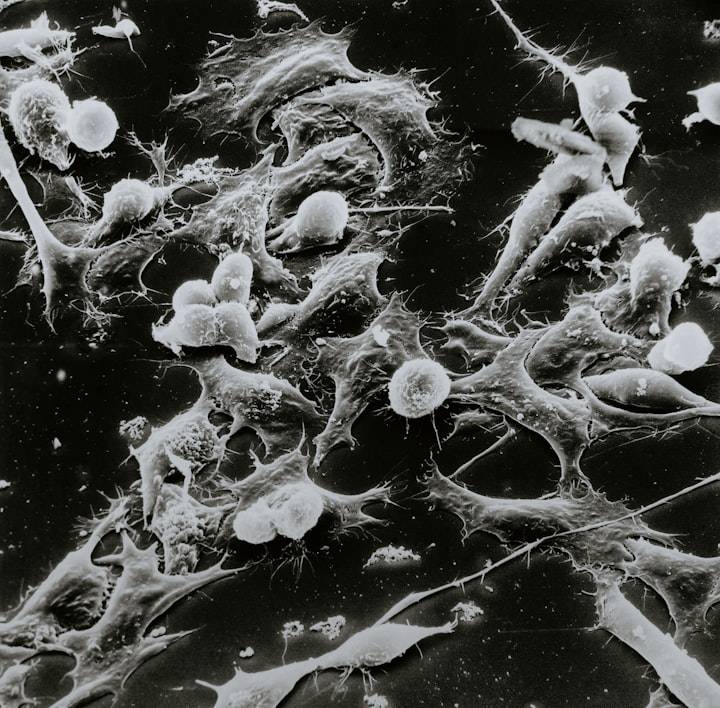How to Help Prevent Cancer
In many cases cancer is something that develops because of certain lifestyle choices. Of course smoking or sunning yourself can lead to cancer. So can exposure to certain toxins and just in general an unhealthy lifestyle. However, there are steps you can take to help prevent cancer. This doesn't mean you won't ever get some form of cancer; sometimes you're just predisposed to cancer. But, it means that you are doing all you can to stay healthy.
How You Can Prevent Cancer from Happening to You
If you do have a family history of cancer, then you probably don't want to do things which raise your chances even higher of getting cancer. Here's what you can do to hopefully prevent it.
1. Reduce your sugar intake. It has been proven that cancer develops in an environment that is rich in glucose.
Less oxygen and more sugar raises your risk of getting cancer.
2. Maintain a proper pH (potential Hydrogen) in your body. A nice high pH level is more oxygen rich and an environment which cancers do not do well in. So keep your pH above 7.0. To do this, drink a lot of water, eliminate soda, reduce the amount of meat you eat, minimize your consumption of sweets, and eat a lot of raw vegetables.
3. Exercise regularly. It doesn't really matter what kind of exercise - just keep moving.
4. Get enough sleep. Your body needs that time or rest to rejuvenate cells, so make sure you're getting the right amount of sleep.
5. Vitamin and mineral supplements will help maintain a healthy body chemistry.
6. Don't use tobacco products. This goes for smoking or chewing. Tobacco products are linked to many different types of Cancer including lung, bladder, cervix, kidney, oral cavity, and pancreas. Avoid tobacco products at all costs and you'll decrease your risks of developing cancer greatly.
7. Protect yourself in the sun. Use a sunscreen with an SPF (Sun Protection Factor) of at least 15. Reapply frequently. Cover yourself with clothing. Wear dark colours. Wear a hat. Avoid midday sun. Stay in the shade. Avoid tanning beds and lights.
8. Stay up to date on your immunizations. Protecting yourself from certain types of viruses will limit your chances of getting some cancers. Hepatitis B and HPV (Human Papillomavirus) are two vaccines you should be sure you have.
9. Avoid risky behaviour which can lead to infections. This means practice safe sex and don't share needles. HIV or AIDS increases a person's chance of getting cancer of the anus, liver, or lungs. HPV like mentioned above is associated with cervical cancer. This is a sexually transmitted disease. Sharing needles increases your chances of Hepatitis B or Hepatitis C. So this is all stuff you want to avoid.
10. Stay on top of your medical care. Seeing your doctor regularly and screening for cancers will help you diagnose a problem early, possibly preventing it from turning into cancer. staying on top of regular check-ups and screenings, maintaining open communication with your healthcare provider is essential for proactive medical care. Ensure that you discuss any symptoms, concerns, or changes in your health with your doctor, no matter how small they may seem. Early detection of potential health issues—such as high blood pressure, abnormal cholesterol levels, or blood sugar imbalances—can prevent the development of more severe conditions like heart disease or diabetes. Prioritize preventive measures such as flu vaccinations, bone density scans, and vision tests to keep your overall health in check.
Moreover, lifestyle choices like eating a balanced diet, regular exercise, and managing stress can complement your medical care and contribute to long-term wellness. Be proactive in seeking professional advice on nutrition and exercise that align with your age, medical history, and current health status. Simple actions, such as monitoring your weight and keeping track of changes in your body, can also assist doctors in diagnosing issues early on. Consistent medical care, combined with a healthy lifestyle, significantly reduces the risk of chronic illnesses and helps you live a longer, healthier life.



No comments yet
Be the first to share your thoughts!